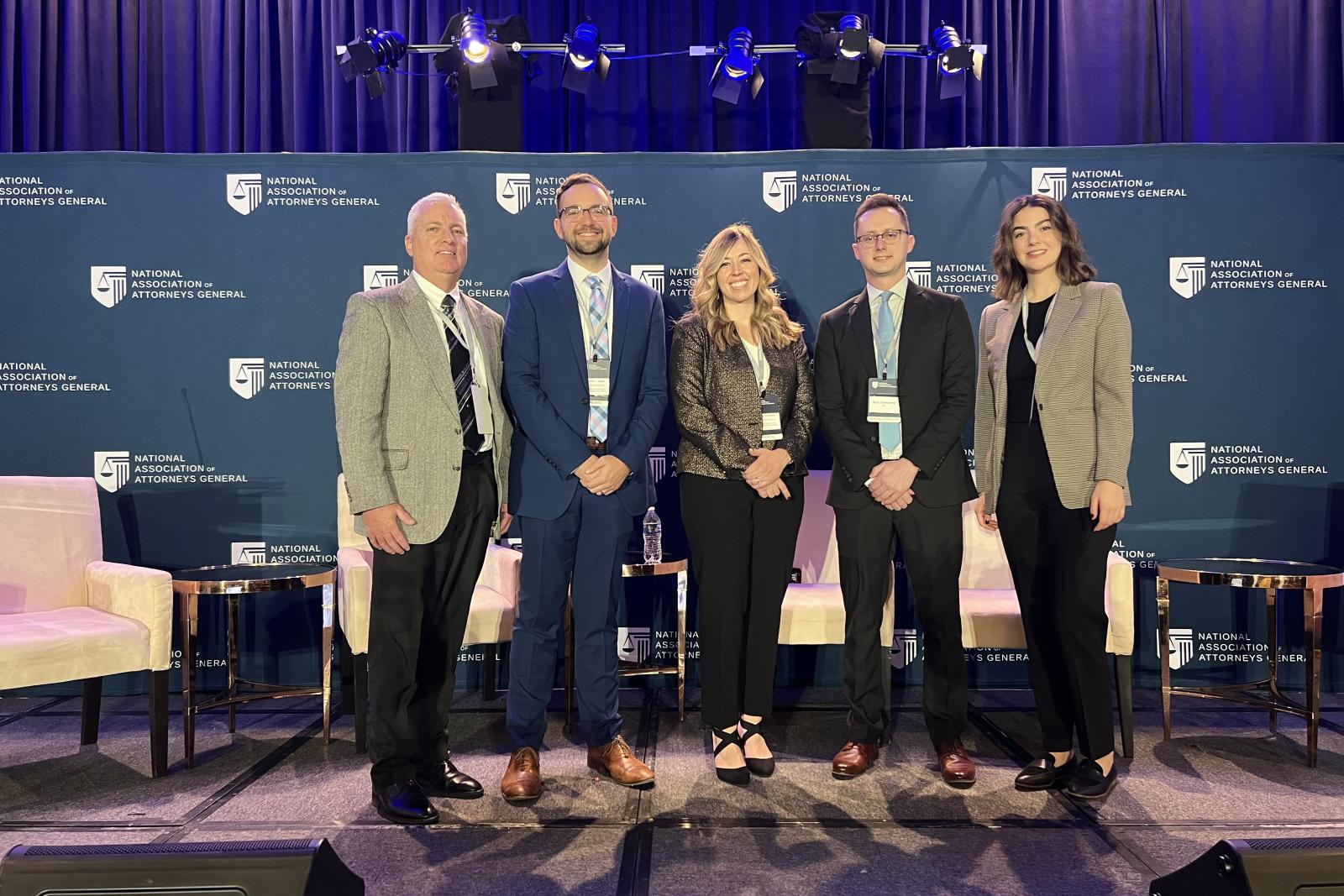Standardizing opioid use disorder curricula to improve patient outcomes

In 2022, the Ohio Attorney General’s Scientific Committee on Opioid Prevention & Education (SCOPE) published survey results highlighting a need for standardization around opioid use disorder (OUD) curricula for health sciences students around Ohio.
To meet this need, a SCOPE educational subcommittee co-chaired by Kelsey Schmuhl, PharmD, BCACP, assistant professor at The Ohio State University College of Pharmacy, designed a new educational offering for Ohio health sciences students called the Interprofessional Program on Opioid Use Disorder. Through a partnership with the college’s Learning Design and Multimedia team, the program launched in spring 2022.
“We know that interprofessional health care really improves outcomes for patients, and this program helps standardize how we’re teaching opioid use disorder across the health disciplines,” Dr. Schmuhl said. “This ensures our students come out of their programs with a baseline knowledge that’s similar across the board and understand how to treat a patient holistically and collaboratively.”
The program contains two parts: asynchronous modules to give students standardized foundational knowledge around OUD and a synchronous symposium that leverages an escape room format for a complex patient case study. Upon completing both parts of the program, learners earn a certificate of completion from the Ohio Attorney General’s Office, indicating they have completed 10 hours of education in opioid use disorder.
“OUD is not just a problem in Ohio, it’s an issue everywhere, so I’m looking forward to getting this program out to more people.”
The college’s Learning Design and Multimedia team, including Steven Nagel, Ross Tamburro and Emily Gilbert, was instrumental in creating an experience that was accessible and engaging for learners.
“When we assessed the asynchronous modules, looking at retainment of knowledge, we found that in all topic areas, students had a significant improvement in their knowledge and understanding of those seven areas (neurobiology, treatment of OUD from a medication and treatment of care standpoints, adverse childhood experiences, social determinants of health, motivational interviewing, and ethics and stigma),” said Jon Sprague, RPh, PhD, director of science and research for the Ohio Attorney General’s Office and chair of SCOPE.
The program has received over $200,000 in funding, including $158,000 from the National Association of Attorneys General, to support taking the program nationwide. Other funders include the Ohio Attorney General’s Office, the Ohio State Office of Outreach and Engagement and Echo360, an educational technology program focused on equitable and accessible learning.
In December 2023, the program’s results were highlighted in BMC Medical Education. The study found that an interprofessional educational experience, including both an asynchronous course and a virtual synchronous escape room, can increase participant knowledge of OUD and may improve student perceptions of working with an interprofessional team and caring for patients with OUD.
In August 2024, the college was selected to participate in the National Academy of Medicine’s (NAM) Action Collaborative on Combatting Substance Use and Opioid Crises Core Competency Implementation Pilot Project. In partnership with the Action Collaborative, the college will join 15 other implementation sites across the U.S. to implement the Action Collaborative’s 3Cs Framework for Pain and Unhealthy Substance Use in an effort to advance substance use care, workforce competency and interprofessional education and practice.
“It’s really exciting to think about how this program could be shared with students and practitioners across the country,” Dr. Schmuhl said. “OUD is not just a problem in Ohio, it’s an issue everywhere, so I’m looking forward to getting this program out to more people.”